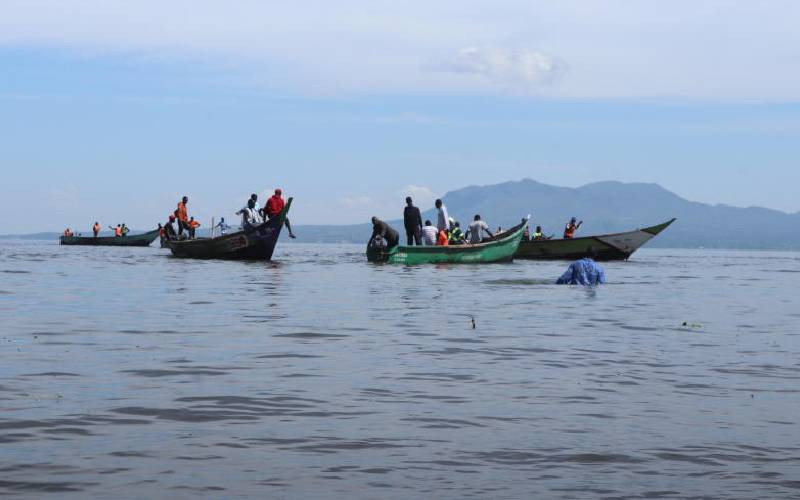
A return to Lake Victoria beach roughly 15 years since last visiting has left me asking what humans really want. In those days, the sight of beaches was one to behold, as palm trees rhythmically swung their trunks and leaves in tune with the wind, their sweet sound blending with the waves. It was therapeutic. Fish was plenty.
On this shore in Bondo, Usenge, the palm trees are gone. The beauty faded. After damaging the shoreline and being repelled by the authorities, illegal sand mining has gone deeper into the lake. Instead of boats returning with fish, men can be seen offloading sand.